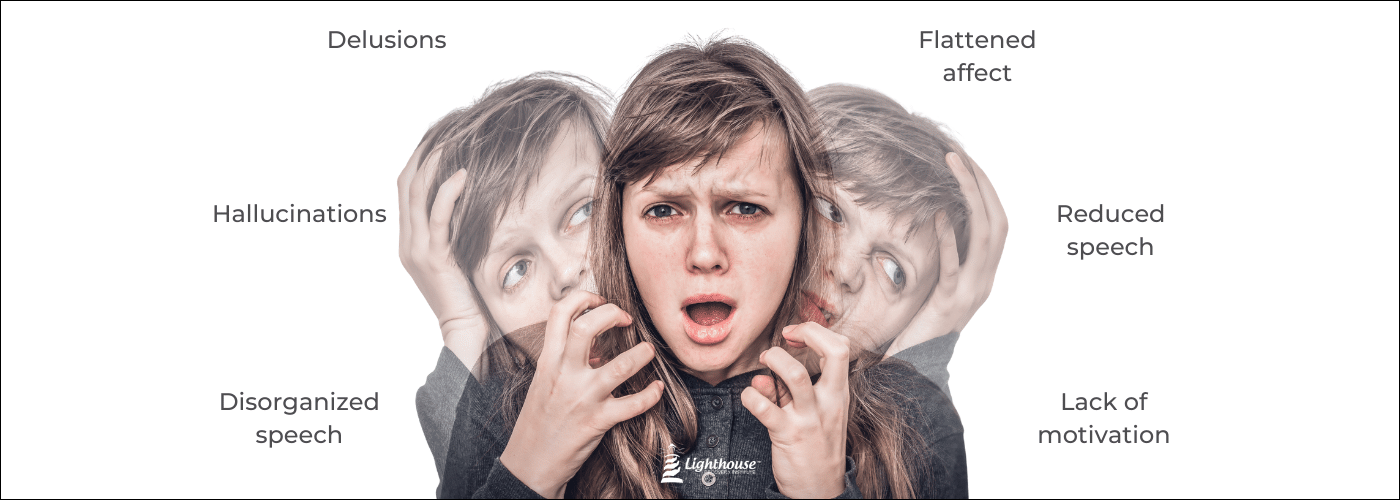
Schizophrenia is a severe and chronic mental illness that affects how a person thinks, feels, and behaves. It is a disorder that can cause significant distress and can interfere with a person's ability to function in their daily life. Schizophrenia affects approximately 1% of the population worldwide and usually develops in late adolescence or early adulthood.
The exact cause of schizophrenia is unknown, but it is believed to be caused by a combination of genetic, environmental, and brain chemistry factors. Studies suggest that there may be abnormalities in the structure and function of certain areas of the brain, as well as imbalances in certain neurotransmitters such as dopamine and serotonin.
Symptoms of schizophrenia can be divided into positive, negative, and cognitive symptoms. Positive symptoms include hallucinations, delusions, disorganized speech, and disorganized behavior. Hallucinations are experiences of hearing or seeing things that are not there, while delusions are false beliefs that are not based in reality. Disorganized speech and behavior can make it difficult for a person with schizophrenia to communicate and interact with others.
Negative symptoms include a lack of motivation, decreased emotional expression, social withdrawal, and poor self-care. Cognitive symptoms can include difficulties with memory, attention, and decision-making, which can significantly impact a person's ability to function in their daily life.
Diagnosis of schizophrenia is based on a thorough psychiatric evaluation, including a review of symptoms, medical history, and family history. There are no laboratory tests to diagnose schizophrenia, but tests may be used to rule out any medical conditions that may cause similar symptoms.
Treatment for schizophrenia usually involves a combination of medication and psychotherapy. Antipsychotic medications can help control the positive symptoms of schizophrenia, while psychotherapy such as cognitive-behavioral therapy can help individuals with schizophrenia learn coping skills, improve communication, and manage their symptoms.
Supportive therapy and social skills training can also be beneficial in managing schizophrenia. These interventions can help individuals with schizophrenia learn how to communicate effectively, build social relationships, and live independently.
It is essential to seek professional help if you or a loved one is experiencing symptoms of schizophrenia. Early intervention can improve the chances of a positive outcome, and it is not a sign of weakness to seek help.
In conclusion, schizophrenia is a severe and chronic mental illness that affects how a person thinks, feels, and behaves. It can cause significant distress and interfere with a person's ability to function in their daily life. Treatment usually involves a combination of medication, psychotherapy, and supportive interventions. With proper treatment and support, many individuals with schizophrenia can live fulfilling and productive lives. It is essential to seek professional help if you or a loved one is experiencing symptoms of schizophrenia.

 Video Interviews on Television
Video Interviews on Television Radio Fm Interviews
Radio Fm Interviews Articles in Newspapers
Articles in Newspapers Mental Health Activities
Mental Health Activities Awards and Celebrities
Awards and Celebrities Corporate Mental Health
Corporate Mental Health
